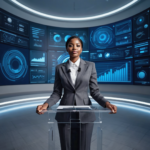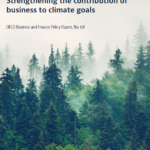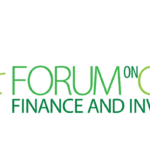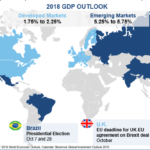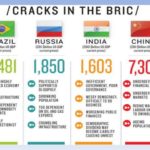The recent statements by Securities and Exchange Commission Chair regarding the International Financial Reporting Standards (IFRS) Foundation represent a concerning escalation in the US regulatory retreat from sustainability-focused financial disclosure. By threatening to ban overseas companies from using IFRS accounting rules if sustainability considerations remain integrated into international standards, SEC Chair is not only undermining decades of progress toward global financial harmonization but also advancing a fundamentally flawed understanding of how modern capital markets operate. This aggressive stance threatens to fragment the global financial system at precisely the moment when investors, stakeholders, and markets demand greater transparency and accountability. The implications extend far beyond accounting technicalities – they strike at the heart of how businesses communicate their long-term value creation strategies to the global investment community.
A Dangerous Misuse of Regulatory Power to Advance Ideological Agendas
Chair Atkins’ threat to prohibit overseas companies from using IFRS standards represents an unprecedented weaponization of US market access to impose ideological preferences on international standard-setting bodies. By characterizing sustainability reporting as “chasing political fads,” the SEC chair fundamentally misunderstands the evolution of financial materiality in the 21st century.
The IFRS Foundation’s integration of sustainability considerations into accounting standards reflects decades of empirical evidence demonstrating that environmental, social, and governance factors materially impact long-term financial performance. Climate risks, resource scarcity, regulatory changes, human resources management, and stakeholder expectations are not “political fads” – they are business realities that investors have been increasingly pricing into their decisions for years.
This regulatory intimidation tactics sets a troubling precedent. If successful, it signals that the US is willing to use its dominant position in global capital markets to coerce international bodies into adopting American regulatory preferences, regardless of global consensus or market demands. Such an approach undermines the multilateral cooperation that has made international financial markets more efficient, transparent, and accessible over the past two decades.
The threat becomes even more concerning when viewed alongside the SEC’s broader retreat from sustainability disclosure requirements. By withdrawing the climate disclosure rule in June and now targeting international standards that incorporate sustainability considerations, the current administration is systematically dismantling the infrastructure that enables informed capital allocation in an era of transition risks.
For the thousands of international companies that rely on US capital markets, this creates an impossible choice: abandon internationally recognized accounting standards that provide imperfect yet enhanced pictures of business performance, or face exclusion from the world’s largest capital market. This is regulatory coercion masquerading as standards enforcement.
Built on False Premises: The Double Materiality Red Herring
Perhaps most troubling about SEC’s position is that it appears to be built on fundamental misunderstandings about how IFRS sustainability standards actually operate. Criticism centers on so-called “double materiality” disclosures, yet the IFRS sustainability standards explicitly do not rest on double materiality principles.
The chair’s concern about companies being required to disclose “the sustainability impact of their activities on the outside world” mischaracterizes the IFRS approach, which focuses primarily on financially material sustainability-related risks and opportunities that affect enterprise value. This is precisely the information that investors need to make informed decisions about long-term value creation and preservation.
Even more problematic is the implicit assumption that millions of non-US companies would somehow be subject to onerous sustainability reporting requirements that fundamentally alter their accounting practices. This represents a dramatic overstatement of both the scope and the prescriptiveness of current IFRS sustainability standards. The vast majority of companies worldwide continue to operate under traditional accounting frameworks, with sustainability reporting primarily affecting larger, publicly traded entities that already face substantial disclosure requirements.
The reality is that IFRS sustainability standards provide a voluntary framework for companies that choose to enhance their financial reporting with material sustainability information. They do not mandate universal adoption of “double materiality” approaches, nor do they require companies to fundamentally restructure their core accounting practices.
By building policy on these false premises, the SEC risks creating solutions to problems that don’t exist while ignoring the genuine market demand for enhanced transparency about long-term value drivers. This approach undermines the credibility of US regulatory leadership and suggests a disconnect from the actual needs and practices of modern capital markets in a global context where not only the European Union but also China are shaping such modern frameworks.
Regulatory Overreach That Stifles Market Innovation and Investor Choice
The SEC’s intrusive stance represents a troubling expansion of regulatory authority into areas where market forces should determine best practices. While maintaining consistency in core accounting principles remains essential for market integrity, there is no legitimate regulatory interest in preventing investors and business executives from accessing additional analytical tools and key performance indicators that enhance their ability to assess long-term value creation.
Modern portfolio management increasingly relies on sophisticated analytical frameworks that go well beyond traditional financial metrics. Institutional investors managing trillions in assets have developed comprehensive approaches to evaluating environmental risks, social license to operate, governance quality, and other factors that materially impact long-term returns. These approaches have emerged not because of regulatory mandates, but because they improve investment outcomes.
The SEC’s position essentially argues that American regulators should determine what information global investors can access when evaluating non-US companies. This represents an extraordinary assertion of extraterritorial regulatory authority that extends far beyond the SEC’s legitimate mandate to protect US investors and maintain fair, orderly markets.
Furthermore, this approach ignores the competitive dynamics that drive innovation in financial reporting and analysis. Companies and investors that can better identify, measure, and manage long-term value drivers gain sustainable competitive advantages. By restricting access to internationally recognized frameworks for sustainability reporting, the SEC may inadvertently handicap US investors who need comprehensive information to compete effectively in global markets.
The irony is particularly acute given the administration’s broader rhetoric about reducing regulatory burdens on business. By threatening to force thousands of international companies to reconcile their accounting with US standards – a costly and time-consuming process – the SEC would impose significant compliance burdens while reducing the quality and comparability of financial information available to investors.
This represents regulatory overreach in service of ideological objectives rather than market protection or efficiency enhancement.
The Path Forward: Preserving Market Integrity While Enabling Informed Capital Allocation
The current trajectory risks significant damage to both US market leadership and global financial system efficiency. Rather than threatening international standard-setting bodies, US regulators should engage constructively in global efforts to enhance financial transparency and comparability.
The solution is not to retreat from sustainability considerations in financial reporting, but to ensure that such considerations are implemented in ways that genuinely serve investor needs rather than advancing political agendas. This requires nuanced understanding of how different types of sustainability information contribute to investment decision-making and long-term value assessment.
Market participants – not regulators – are best positioned to determine which analytical frameworks and reporting standards provide the most valuable insights for their specific needs. The role of securities regulators should be to ensure that whatever information is provided is accurate, comparable, and material to investment decisions, not to dictate which categories of information can be considered material.
The IFRS Foundation’s approach, which focuses on financially material sustainability-related information while maintaining independence from broader political agendas, represents exactly the kind of market-driven evolution that enhances rather than undermines financial reporting quality.
Moving forward, the US should work within international forums to shape sustainability reporting standards in ways that prioritize investor utility and market efficiency. This collaborative approach would preserve American influence over global standard-setting while avoiding the counterproductive fragmentation that threatens to result from the current confrontational stance.
The stakes are too high for regulatory capture by ideological considerations. Global capital markets need consistent, comparable, and comprehensive information to function effectively. Threatening to fragment international accounting standards serves neither market efficiency nor investor protection.
Ready to navigate the evolving landscape of sustainability reporting and international compliance?
At Ksapa, we help organizations understand and implement robust sustainability reporting frameworks that meet both regulatory requirements and investor expectations across multiple jurisdictions. Our experts can guide you through the complexities of international accounting standards while positioning your organization for long-term success in an increasingly integrated global economy.
Contact Ksapa today to develop a sustainability reporting strategy that enhances transparency, drives performance, and maintains compliance across all relevant markets and frameworks. Don’t let regulatory uncertainty compromise your access to global capital or your competitive positioning.
Visual designed by Freepik
Président et Cofondateur. Auteur de différents ouvrages sur les questions de RSE et développement durable. Expert international reconnu, Farid Baddache travaille à l’intégration des questions de droits de l’Homme et de climat comme leviers de résilience et de compétitivité des entreprises. Restez connectés avec Farid Baddache sur Twitter @Fbaddache.



